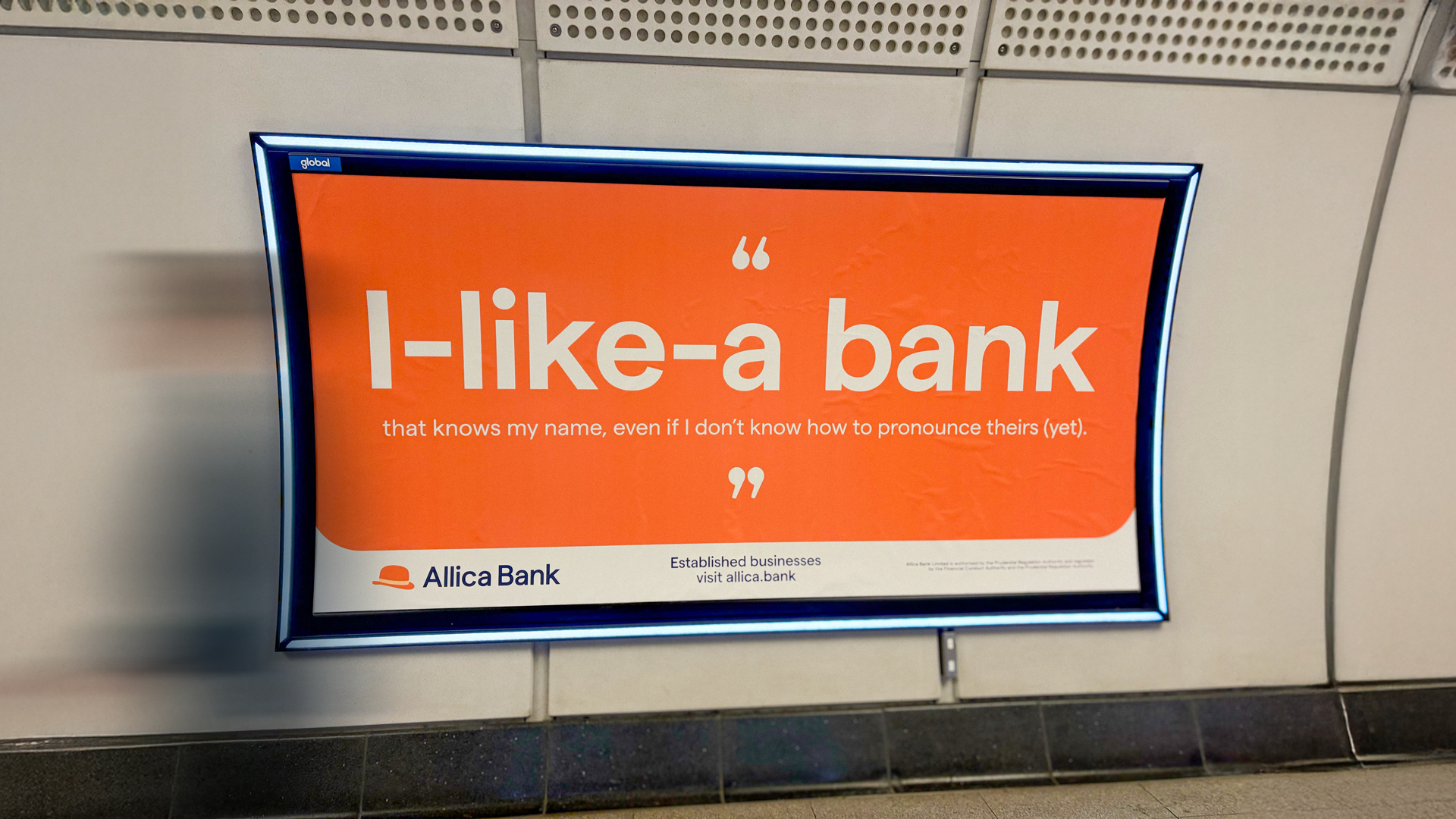As an investment option, commercial property can offer attractive returns and add some much-needed diversity to your portfolio.
There are risks and costs involved, of course, but the merits of investing in commercial property can be underreported.
This article explains the basics of commercial investment mortgages (or commercial buy-to-lets), how they can be used and by whom and the pros and cons involved. By the time you finish reading, you should have a lot more knowledge and purpose when it comes to commercial property.
Contents
Contents
Contents
What is a commercial investment mortgage?
A commercial investment mortgage is a way of borrowing money to buy a commercial property that you intend to lease out.
Although not exactly the same, you can make a comparison with buy-to-let mortgages for residential properties. In fact, you'll sometimes see them referred to as commercial buy-to-let.
You can also use a commercial investment mortgage to release cash from your existing portfolio of properties. In this instance, you could roughly compare it to remortgaging a residential property.
Differences between commercial mortgages and commercial investment mortgages
Commercial mortgages generally take one of two forms – investment or owner-occupied. There are differences in their purpose and structure that are worth understanding before we go any further.
Owner-occupied commercial mortgages
-
Are used by businesses to buy their own premises
-
The property is used to support the trading activities and growth of a business
A comparison with residential property works here, too: an owner-occupied mortgage is equivalent to the one you use to buy your primary residence.
Commercial investment mortgages
-
Are used by businesses to start or extend a property portfolio
-
The property is owned as an investment, so is used to build equity and generate returns
Each lender will have its own eligibility and qualification criteria.
At Allica Bank, we lend between £150,000 and £10 million on terms of 5-25 years for both types of mortgage. The arrangement fee of 2% is also the same. The main difference is that investment mortgages require a maximum loan-to-value (LTV) of 75%, compared to 80% for owner-occupied.
Semi-commercial mortgages
These mortgages apply to mixed-use properties – e.g. a shop with a residential flat above it. They’re sometimes called “mixed-use mortgages” and are available as owner-occupied or investment mortgages, provided certain criteria are met relating to income distribution and floor space.
Properties like this aren’t especially common, but if you do find one and apply for a mortgage on it, you can expect:
-
Lower rates than a purely commercial property
-
Floorspace requirements (e.g. 50-80% of floorspace is residential)
-
Income requirements (the majority of income generated from the property being from trading activities rather than rent)
The types of commercial buy-to-let mortgages
We’ve explained how investment mortgages are one subcategory of commercial mortgages. To get more granular, there are many subcategories within this subcategory.
We’ll run through them below and, where any specific examples are needed, we’ll reference our approach at Allica. Sometimes, you need to see it in cold hard numbers to really understand.
Fixed rate mortgages
A fixed rate mortgage charges you the same interest rate for a set period of time.
Using Allica as an example, our five-year fixed commercial investment mortgage (for a LTV up to 60%) has a rate of 8.50% in August 2024.
A fixed rate mortgage can work in your favour if you need certainty over cashflow and repayments, particularly if your income is fixed.
Variable rate mortgages
A variable rate mortgage charges you a changeable interest rate. Your rate could start at 9.00% and then move to 9.50%, for example, in line with changes to your lender’s standard variable rate.
The rate can go up or down, which means your repayments will follow suit. If rates are falling, you’ll benefit. If they rise, you’ll have to pay the extra.
Interest-only mortgages
With an interest-only mortgage, for a set period of time, you only repay the interest you accrue and not the balance of the loan. At the end of the loan, you have to repay the balance in full.
These mortgages can be useful if you need to keep your monthly repayments low, free up more of your monthly income, or if you have a specific plan to repay at the end of the loan.
The lower repayments are attractive, but you need to know you can repay the loan when it’s due. If not, the bank can repossess your property.
Balloon payment mortgages
Balloon payments are used in lots of loans, including asset finance. Applied to commercial investment mortgages, a balloon payment doesn’t change much from a normal variable or fixed rate mortgage – except at the end.
With a balloon payment, you make monthly repayments, followed by a significantly larger final repayment.
You can expect to pay a balloon payment on a partially amortising mortgage – one of the products we offer at Allica Bank.
The benefit is that your monthly repayments will be lower than with a traditional commercial mortgage. The challenge is that you need to have the extra cash ready to repay the loan in that final payment.
Bridging loans
Bridging loans aren’t exclusive to property, but they’re commonly used for these transactions.
A bridging loan provides a bridge (hence the name) between your financial position today and your financial position in a year or two. These are short-term loans (often repaid in 12 months) that fill a gap in your cashflow.
They can be arranged quickly (certainly faster than a mortgage), which makes them useful for acting on unexpected opportunities or unique situations. Rates on bridging loans tend to be higher than most mortgages.
Benefits of commercial buy-to-let mortgages in the UK
Commercial property isn’t talked about as much as other investments, even though it’s a legitimate and potentially lucrative way to invest your money. You’re also helping Britain’s businesses operate and grow, which is a more than worthy cause.
Potential for high returns
Commercial properties can offer better annual returns than many savings accounts and other investments.
Research by real estate agent Savills put average equivalent yields (i.e. net of maintenance and other costs) for commercial properties in November 2024 between 4.00% and 8.00%, depending on the property type. Equivalent yields account for operating costs, unlike initial or running yields.
All investments come with risk, though, of course, and there is no guarantee of positive returns. The value of your investment can fall as well as rise and, if you fail to keep up your repayments, your property could be repossessed. We’ve outlined some of the risks in more detail below.
Tax advantages
Investing in a commercial property is a major outgoing, which can reduce your tax bill in the year of purchase.
Depreciation, maintenance and interest paid on loans* are tax deductible, too, so your property can continue reducing your tax liabilities throughout the lifetime of your loan and ownership.
Check with your accountant or a tax advisor before claiming any deductions.
* Interest paid on residential parts of a mixed-use property are not directly deductible. Instead, it’s possible to receive a tax credit on the expense.
Diversification of investment portfolio
Property can be a sensible way to spread your investments and hold some of your net worth in another asset type.
Being over-indexed on any asset can be risky – if the value of that asset crashes, your losses can be substantial and you won’t have much room for manoeuvre.
Appreciation and value-add opportunities
As well as returning an annual yield, your property could pay you an additional return upon resale. It’s possible that a property you buy today could be valued higher in 10 years’ time.
There’s also the possibility that the land your property is situated on could become more valuable, through changes to things like planning permissions or mineral rights.
The risks associated with commercial investment mortgages
As with any investment, there are risks involved. Property can be volatile and if you tend towards being risk averse, you might feel more comfortable using your money in other ways.
Market fluctuations
Markets are volatile, as any investor knows. The problem is, with a commercial investment mortgage, you’re exposed to three at once:
-
Interest rates (affecting your repayments)
-
Property prices (affecting your sales and rents)
-
Economic conditions (affecting your occupancy)
A lot can change with commercial properties and you need a healthy amount of resilience to be a commercial landlord.
Environmental and regulatory risks
You take on a lot of responsibilities and legal obligations as a landlord, which can change or increase at any time.
You might have to record and report clear emissions data and/or energy performance ratings, making good any shortcomings or risks that emerge.
If new policies are introduced that affect landlords, you’ll be obliged to meet them – usually at your own expense.
High initial costs
While £1,000 can buy you plenty of index funds, it barely scratches the surface with a commercial mortgage.
To invest in commercial property, you’ll need a lot of cash available. With Allica Bank, you’ll need a minimum deposit of 25%. As well as the deposit, you’ll have to pay the following fees:
-
Arrangement
-
Commitment
-
Valuation
-
Re-inspection and re-valuation (if needed)
-
Legal costs
It all adds up and you need to be prepared to pay another 5% or more on top of the purchase price in assorted fees and costs.
Maintenance and management
Your property is your responsibility, even if you let it out. You’ll need to budget and pay for ongoing maintenance and management costs – whether that’s through a management company or your own hard graft.
Tenant and occupancy risks
You’d hope for a long and happy tenancy, but it’s always possible that something could go wrong with your tenants. From late rent payments to legal battles, you can never be sure of how things will progress.
There’s also the possibility that your property goes unoccupied for a time. In that case, you’ll have no rent coming in but mortgage payments to make. You need to be prepared for this to happen, otherwise you could quickly fall behind on payments and risk repossession.
What do you need to qualify for a commercial investment mortgage in the UK?
Investment mortgages aren’t handed out to anybody who applies; lenders have vigorous processes to follow and requirements they expect you to meet.
To qualify for a commercial investment mortgage, you’ll need to provide several pieces of evidence and follow a few mandatory processes.
Credit requirements
Whenever any entity applies to borrow money, it will face a credit check. Lenders will want to check your business’ creditworthiness, as well as having assurances about the directors and their financial history.
If you or your business have a history of late payments or insolvency, you might not be successful in your application.
Down payment
To secure a commercial investment mortgage, you’ll need to have a deposit ready. For Allica Bank’s investment mortgages, we ask for a minimum deposit of 25% (a 75% LTV).
Without enough money saved for the deposit – and proof of it – you’ll not be able to take out a mortgage.
Debt-to-Income (DTI) ratio
Your lender will want to know you can afford the repayments on your mortgage. They assess this by calculating at your DTI – taking your business’ total debts and dividing them by its monthly income.
They’ll want to see that you can afford to make repayments at a higher rate than your actual repayments, to account for an increase in rates and other volatility.
Property appraisal and valuation
Before a lender agrees to mortgage a property, they’ll need to know you and they are making a sensible investment.
Buying a property for £100,000 more than its fair market value puts you and the lender at risk of losing money. An appraisal and valuation will check it’s in good repair and being sold at a reasonable price, considering its condition, other properties on the market and any other risks identified.
Steps to secure a commercial investment mortgage
If you decide to apply for a commercial mortgage, every lender will have a clear process for you to follow from start-to-finish. It might vary a bit between lenders, but the general structure will be similar across the market.
You can expect to go through the following steps to get a commercial mortgage.
Finding your property
There’s no mortgage without a property, so one of the first things you’ll need to do is find a property you’d like to buy. You can work with commercial agents or do your own desk research to understand what’s available.
You’ll need to work out your budget (either total or in price per square foot – a common metric used in commercial property sales), target yield and other criteria.
Prequalification or getting a decision in principle (DIP)
Applying for a DIP is all about making sure you’ve got the basics in place to move ahead with an application. The lender will want to check you meet all their standard criteria and assess what you can afford to borrow.
You can go through prequalification with one lender and choose another one to actually borrow money from.
To get a DIP from Allica Bank, you’ll need to share:
-
Your company details
-
Personal details of the applicant(s)
-
The address, estimated value, age, freehold/leasehold status and type of the property
-
Details of the tenant and their lease terms (if occupied)
-
Product details (the term, structure and repayment profile)
-
Your affordability (turnover, EBITDA, rent)
-
Details of any other income sources
Finding a lender
You can apply for a loan with the lender you used for prequalification, or you can look elsewhere in the market.
Interest rates tend to play a big part in most investors’ minds, but you’ll also want to consider other factors like customer service, loan length, repayment terms and penalties.
Submitting a loan application
Once you’ve chosen your lender, you’ll need to submit your application. If you’re applying to Allica Bank, you’ll be able to talk to a real, helpful human if you get stuck. Not every lender offers such close support, though.
For an Allica application, you’ll need to evidence:
-
The last two years of financial accounts
-
Full tax returns of ultimate beneficial owners/applicants
-
Bank statements for the last three months (personal and business)
-
A proposal summary, which must include: tenant performance over the last 12 months, background experience of the directors and a brief description of the security property.
-
A property schedule
-
Assets, Liabilities, Income and Expense (ALIE) report
-
Nominated bank account details
-
Amount and source of deposit contribution
Underwriting and approval
Once you’ve submitted your application, it’ll go to the lender’s underwriting team to decide whether they can approve the buy-to-let loan.
You might be asked to submit more information or provide added context to some of the evidence submitted in your application.
Your lender will also need to conduct a valuation, searches and other checks, as well as jumping through the many legal hoops that the system demands.
Closing the deal
If you get approved for the mortgage, you’ve then got to complete the transaction. After approvals and final checks, you’ll enter the drawdown period – the funds will be exchanged and you can collect your keys.
Why should I use Allica for my commercial mortgage?
You have a lot of lenders to choose from, including Allica Bank. While we’ve got you here, it’d be silly not to let you know about our commercial mortgages and why so many established businesses choose Allica.
-
Dedicated relationship manager (unless you were introduced by a broker)
-
75% maximum LTV for commercial investment mortgages
-
Quick decisions – always decided by humans, never by a computer
-
Easy-to-understand product guides, fees and tariffs and communication
Learn more about Allica’s commercial mortgages
Unlocking a different kind of investment
If you’re looking to make an investment, commercial property is well worth considering. Before you get too far into planning, you should be confident that you understand the risks involved and the requirements lenders have.
Investing in commercial property is a good way to diversify your portfolio and income, as well as contributing to the fabric of Britain’s SME landscape.
It’s not the right choice for every investor, but, if you’re looking to make the move, you can always enquire about a commercial investment mortgage with Allica.
Links were live and information was correct at the time of writing the article.
Disclaimer: This is information – not financial advice or recommendation
The content and materials featured in this article are for your information and education only, and are not intended to take into consideration any particular recipients’ financial situation. The product details and interest rates referred to are correct at the time of writing.
The information does not constitute financial advice or recommendation and should not be considered as such. Allica Bank will not accept any liability for any loss, including without limitation to, any loss of profit, which may arise directly or indirectly from use of or reliance on such information.





